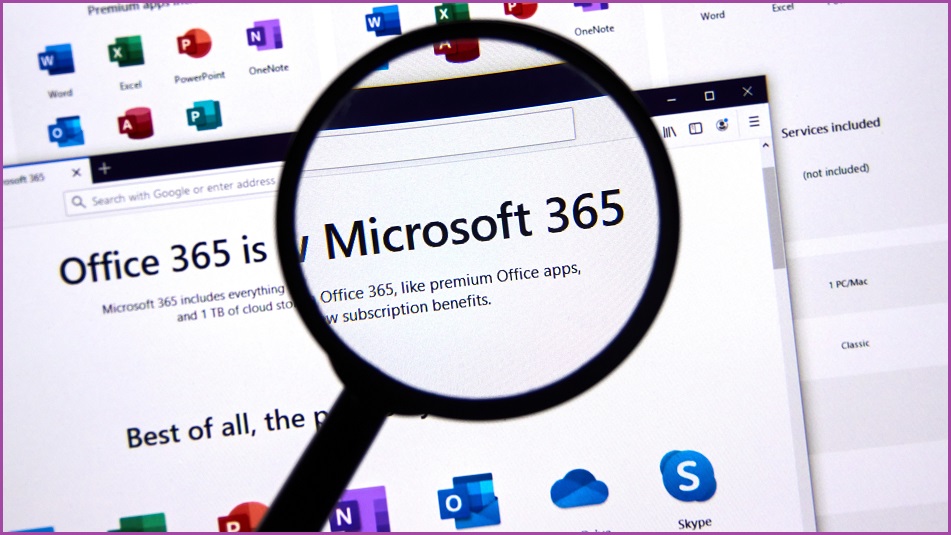How would you rate your productivity at work out of 10?
You may already keep track of how many emails you send out, phone calls you make, or lines of code you write.
But if your organisation uses Microsoft 365, you might already have a personal productivity score that is visible in the 365 admin portal.
Microsoft came under fire last week when Wolfie Christl, a researcher from Austrian digital rights non-profit Cracked Labs pointed out the tech giant’s foray into tracking employee performance.
“Esoteric metrics based on analysing extensive data about employee activities has been mostly the domain of fringe software vendors,” Christl said in a Twitter thread.
“Now it's built into [Microsoft] 365.
“A new feature to calculate 'productivity scores' turns Microsoft 365 into an full-fledged workplace surveillance tool.”
Workplace Analytics is hardly a hidden feature in Microsoft 365 – it’s got a whole blog devoted to the workplace data analysis operation, its features, updates, and use-cases.
In his detailed thread, Christl digs into the functions of the company’s analytics services and takes issue with the way the US tech giant is normalising data collection and surveillance.
“Employers/managers can analyse employee activities at the individual level,” he said.
“For example, the number of days an employee has been sending emails, using the chat, using 'mentions' in emails etc.
“Showing data on individuals can be turned off, but it's activated by default. This normalises extensive workplace surveillance in a way not seen before."
Esoteric metrics based on analyzing extensive data about employee activities has been mostly the domain of fringe software vendors. Now it's built into MS 365.
— Wolfie Christl (@WolfieChristl) November 24, 2020
A new feature to calculate 'productivity scores' turns Microsoft 365 into an full-fledged workplace surveillance tool: pic.twitter.com/FC3N6KkIR3
One of the ways Microsoft introduces its features to workers is through the MyAnalytics function. You may have seen the monthly emails that proclaim insights into your own time management and collaboration.
It pulls rudimentary data from your use of Microsoft products – such as Outlook and Teams – in order to tell you things like how much time you spend in meetings and how promptly you tend to reply to emails.
But that’s just what a regular employee gets to see.
Managers with access to the 365 Admin Centre get whole-of-organisation statistics and even an overall ‘productivity score’ which is measured against the average scores of other companies.
A social credit system for the workplace
Michael Wildenauer, an academic and advisor who chairs the ACS Ethics Committee, agreed that it would be problematic to use Microsoft’s tools to evaluate worker productivity.
“It mirrors what less-enlightened organisations are already doing to surveil their workers, but in an automated fashion, with the potential for deeper surveillance and worse outcomes,” Wildenauer told Information Age.
“Should this develop into automated decision-making responses to sub-par productivity scores – permitting training courses, demoting, not promoting, or even terminating – not part of this software but not entirely unlikely either, then the system has become a social credit scoring system in the workplace.
“Any measure to score the productivity of workers must be fair – for example a right of reply, or redress for faulty evaluations – and transparent to the subjects of the evaluation, and there must be accountability for the system by a human.”
The Commonwealth doesn’t have specific laws aimed at workplace privacy, instead relying on state legislation that tends to vary from state to state, despite the Australian Law Reform Commission recommending in 2014 that workplace surveillance laws be made uniform across the country.
Justin Warren is a board member of Electronic Frontiers Australia. He thinks these forms of automated workplace surveillance should be eradicated.
“Autonomy, mastery, purpose – those are the things that create drive for people,” he told Information Age.
“But this is helping turn humans into interchangeable cogs that can be replaced at bargain basement prices with no respect of their human rights to privacy or dignity.
“If you, as a manager, do this, you’re admitting you are a shit manager. This is a system of oppression and the people designing and using it should be ashamed.”
Microsoft did not respond to requests for comment.










